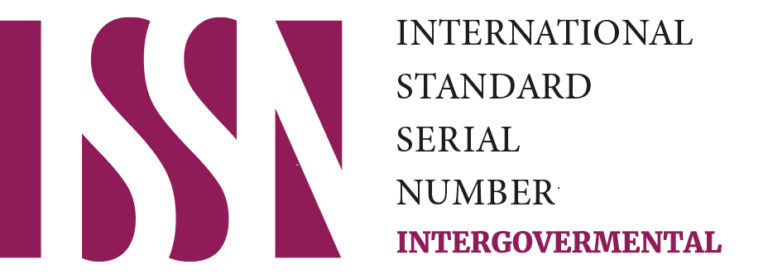ABSTRACT
Historians have established that Christianity has played a significant role in the history of globalization. The relevance of Christianity in the global economic order has been a subject of criticism because of its overarching influence in contemporary international economic order—reflecting a general orientation toward regulated market capitalism—a cause significantly arising from Christian theological, moral, and dogmatic influences. Specifically, this paper will examine Christianity as an agent of globalization, including its ethical, moral, and social philosophy on economic stimulation in contemporary times while scrutinizing religion’s economic and capitalist effects. Philosophical considerations made are neither normative theology nor a typical political agenda for the Christian faith. Instead, a fairer explanation could be a mode of political and social thought motivated by Christian principles. Regardless of the aforementioned, study results revealed that globalization reflects the influence of various elements of Christian thought. Empirical evidence in history suggests that the global missionary movement from the seventeenth century to the present significantly affected democratic, educational, social, and economic progress in the developing world. However, missionaries may also have settled in locations that were already the most favorable for economic development.
INTRODUCTION
Christian thinkers have long made significant contributions to the advancement of economic theory. Scholastic theorists, for example, wrote extensively on topics such as just pricing, sales, leases, and partnership contracts,[1] and Reformation figures like Martin Luther developed bodies of teachings on usury and monopoly.[2] These Christian thoughts are often said to undergird the rise of capitalism. Historically speaking, there is little doubt that Christian ideology aspects have significantly shaped the current international economic order. Scholars, however, frequently disagree on how this has occurred. Empirical research has also shown that the spread of Protestantism after the Reformation had a significant economic impact on human capital, economic development, media market competition, and political economy.[3] Max Weber famously attributed the birth of capitalism to Protestantism and its strict work ethic. Weber agrees that it underlies economic globalization that has occurred, more importantly, in modern times since the fall of the Berlin Wall.[4] Nevertheless, the present question is how this has affected the current international economic order. According to Weber, a reflection of a general orientation toward regulated market capitalism echoes Christian theological, moral, and dogmatic influences.
It is crucial to establish if Christianity has influenced free-market economic activities and capitalism in every true sense. To this end, this paper seeks to achieve this purpose. This study will also look into the role Christian ethical, moral, and social philosophy has played as a source of economic stimulation in the age of globalization, the economic and capitalist effects of religion, and the challenges of combining capitalism and Christianity.
WHAT IS GLOBALIZATION
It is challenging to describe globalization in the same way as it is difficult to define religion, not least since the majority school of thought on the issue holds that it is essentially an economic activity.
The integration of the global economy occurred as a result of technological advancement, and one of the consequences is an increase in mutual dependence among parties. The desire of some states or groups to maintain control over others and the desire for economic gains have all contributed to the rise in interdependence. Nations are now disposed to cooperation and alliances that have led them to depend on each other. The same factors that progressively generated interdependence lead to the globalization of human endeavor through the vehicle of technology, which has made the world smaller in terms of reach.[5]
For example, the United Nations Economic and Social Commission for Western Asia (ESCWA) regards it as the economic phenomenon responsible for lowering obstacles to the flow of products, money, services, and migration.[6] The fact that such definitions depict globalization as a purely economic phenomenon is unlikely to bother experts[7] who see globalization as an international system steered by capitalism, free markets, the spread of technologies and knowledge, and the inevitability integration of the market. Van Gennip,[8] on the other hand, views globalization as the integration of global commodities markets.
Globalization has both advantages and disadvantages. The[9] interconnectedness of nations and peoples, according to Bandyopadhyay, is a desirable development because the globalization of trade and business makes possible the fight against global poverty, the promotion of world peace, and the promotion of human rights. In his encyclical Centesimus Annus, Pope Benedict XVI urged Catholics to engage in the struggle against poverty, injustice, and imbalance generated by globalization.[10] It has been acknowledged that globalization coupled with a free market may benefit the well-being of the whole people, but this agreement is not unconditional.[11] While rejecting the absolutism of nationalism, Christian philosophy acknowledges the values, traditions, and social fabric expressed in a state[12]; it [Christianity] conforms to local identity and unity principles.
CHRISTIANITY AS AN AGENT OF GLOBALIZATION
In the history of globalization, Christianity has played a vital role; yet, the economic method of defining globalization obscures this reality by suggesting that globalization is a phenomenon new to the twenty-first century. Before the relationship between Christianity and globalization can be established, it is thus essential to inquire about when globalization first emerged. Friedman, regarded as a pivotal figure in studying globalization, serves as a beginning point for certain scholars.[13] The author’s premise in the book The Lexus and the Olive Tree is that globalization in its current incarnation is a neoteric [modern] invention—the systemic expression of capitalism’s victory over communism in the early 1990s.[14] According to Fleming, there has only been one other era of global integration worthy of globalization in human history. According to his views, Globalization Round I lasted only from the mid-nineteenth century to the late twentieth century when Christian missionaries actively took the Gospel to significant parts of the world, coming to an end due to the destabilizing effects of the Great Depression.[15]
Some consider Christian social thought antiquated in the age of globalization. However, they fail to see the many ways Christianity and Christians have reacted, albeit positive, to the challenges faced in the contemporary economy over the last six decades.[16] According to Comaroff, [17] the Catholic Church is the world’s biggest and oldest global institution. The World Council of Churches[18] started addressing globalization in 1960 with a series of conferences and publications on global poverty, inequality, and structural trends that had led to injustices and uneven opportunities for the affluent and the poor. A critical study on international solidarity and its repercussions was written during these efforts. More pertinently, matters addressed were related to the transfer of financial resources.[19] Cleveland et al.[20] correlated that it was during this time that the worldwide norm of more prosperous nations contributing one percent of their gross national product to the development of poorer nations was established. Through a series of encyclicals produced during the same period, the Vatican backed a similar message.[21] It emphasized the need for a more equitable and solidary world, with a significant shift in emphasis to the North-South divide, for a peace process based on justice, equality, and solidarity; and for a robust multilateral framework.
RELIGION’S INFLUENCE ON ECONOMIC DEVELOPMENT
Economic growth is the most fundamental metric of a nation’s capacity to generate goods and services and measure its productivity.[22] It is determined by calculating the percent increase in GDP per capita in conventional economics. It is related to various societal factors, including the quality of life. For instance, the GDP per capita may be used as a primary indicator of a country’s standard of living, which is one use. Although GDP per capita is a reasonable indication of a country’s level of development, it is not the only technique to measure a nation’s total prosperity.[23] Health, education, and cultural legacy are simply a few examples of the many essential aspects of human well-being that are not well captured.
The term secularization hypothesis was coined to describe the commonly held view of the relationship between religion and economic growth.[24] According to this view, as nations increase in modernism and rationalism, the influence of religion in social life and governance declines. In other words, economic success hurts religious convictions.[25] Weber uses the United States as an example[26], noting that it turns out negative whenever a link between commercial activity and religious conviction is discovered.
Another ideology linking religion and economic development established the premise that the state should govern religion.[27] When examined experimentally, Audretsch et al.[28] argued that increased state control over religion, determined mainly by whether or not the government chose or authorized church leaders, decreased the effectiveness of religion providers. According to this theory, government involvement in religious activities decreases the efficiency of the state and interferes with church operations, and, in a broad sense, diminishes religious faith. In this respect, it is essential to emphasize that, according to relevant studies, the idea of efficiency seems to be very subjective. According to Cui et al.,[29] the efficiency of a religious provider may be determined by the number of public goods given. According to the paper, they regard religious organizations that are not controlled by the state to be “effective producers of local public goods in the absence of government supply.”
Similarly, Gauthier et al.[30] attempt to explain the system’s success in delivering public services. For instance, they assert that religious providers “hired competent individuals more cheaply and were more likely to offer pro-poor services and charge fewer charges, with the same quality of care” as comparable for-profit and government services.[31] In many cases, the efficiency of religious providers is measured by their provision of public services and, more precisely, by the quantity of output they provide for each unit of input they receive. Although it is not often discussed in the literature, it is intuitively acceptable to assume that a provider’s efficiency relies on the quality with which it fulfills its duties. However, quantifying such a component is challenging.
According to Van Gennip, religious pluralism can also lead to economic competitiveness.[32] Religious pluralism, founded on Adam Smith’s ideas, stresses market or supply-side forces and competition among religious service providers[33]. Assuming that supply-side growth is widely defined as the number and (or) quality of commodities and services produced, the stimulation of growth relates to how religious products (mainly church services) are made accessible to the general public. According to this idea, a greater diversity of religious views promotes more competition in the religious market. According to Cleveland et al.,[34] a better-quality religious product results in more religious participation and convictions, leading to increased religious participation.
Aside from the specifics of Christian theology, there are intriguing questions about the impact of Christian beliefs on economic growth and development in various populations worldwide. According to the preceding, some authors propose a cross-cutting effect for various manifestations of Christian belief in an economy. In contrast, others discovered that increases in church attendance tend to reduce economic growth because church attendance is correlated with the religious sector’s greater use of economic resources. The authors, advocating for religious pluralism, interpreted these results as suggesting that “growth depends on the extent of believing relative to belonging.” In other words, Christian beliefs may positively affect global economic growth even if church attendance appears to be a drag on economic growth empirically. Thus, Christian beliefs and practices have an impact on the global economic order, though the magnitude and sign of that impact are difficult to quantify the impact Christian Morals on Global Economics
To best capture the impact of Christian morals on the economy, reference is made to a critique of protestant ethics. This ethic is based on the beliefs of Christian thinkers, particularly John Calvin, who dominated the theological stage during the Reformation in opposition to the Roman Catholic Church.[35] This vast and diversified belief system is supported by a systematic, integrated, theological, and hermeneutical [interpretation] process, which evolved into a dialectical theological framework. When the movement acquired global attention, it was given the moniker Protestantism.[36]
The sociological theory defines the Protestant ethic as:
the priority put on hard effort, thrift, and effectiveness in one’s worldly vocation, all of which, especially from a Calvinist perspective, were seen as indicators of an individual’s election or everlasting salvation.[37]
Weber[38] concluded that religious beliefs positively affect economic growth, alluding to the notion of Protestant ethics. Protestant beliefs affect professional-life-related personality traits, which in turn promote economic success. Since science could describe the cosmos, there was a growing argument that the supernatural was no longer necessary to explain the world as it existed.[39]
Protestants are committed to inner-worldly asceticism, which is described as “the concentration of human activity on deeds helpful to salvation within the context of everyday life.”[40] It is founded on the idea that the highest moral obligation a person can bear is to fulfill their obligations in the world. Weber[41] explains further that it is not religion say that affects economic activity but rather the worldly asceticism of Protestants. The author continues by stating that traditional asceticism, which is characterized by traditionalism and habit, does not stimulate capitalism, but that because the fulfillment of obligations on Earth was the primary way to demonstrate religious merit, capitalism became more widely accepted and began to lose its reputation as a purely profit-driven endeavor.[42]
According to Cook,[43] Protestant ethics and ideals have shifted society away from the old ideas of labor, capital, and ethics in favor of a more capitalistic, modern, and industrial work ethic centered on the notion that one’s value may be derived from what they produce. “Capitalism’s interaction with religious forces may have been analogous,” Weber[44] writes, “particularly, a coalition between capitalism and religious conviction predisposed to shatter the old economic traditionalism.” In response to Weber’s observation, Cook alluded that northern Europe and the United States attained significant economic success a century ago. He suggested that this was primarily attributable to the Protestant work ethic.
THE ROLE OF CHRISTIAN ECONOMICS IN THE DEVELOPMENT OF CONTEMPORARY ECONOMIC ORDER
Personal Christian economic influence is as broad as the spread of Christianity itself, which has been on a global mission to reach the farthest reaches of the Earth since its inception.[45] Writing on Christianity and the global economy, Attanasi and Yong[46] “Christianity, like capitalism, is a global order, but its nature and function are quite different.” They also claimed that Christianity’s indigenizing tendency allows cultures to develop their syncretic versions of the faith, which has resulted in Christianity being the world’s largest religion. while preventing the church from developing “a centralized global infrastructure in the way that the world’s largest firms have.”[47] Grassroots Christianity infuses the world’s economy without the centralized management of any Christian institution.
According to other scholarly work, the global missionary movement from the seventeenth century to the present has significantly impacted democratic, educational, social, and economic progress in the developing world.[48] However, missionaries may also have settled in locations that were already the most favorable for economic development.[49] An estimated 430,000 Christian international missionaries are spreading the Gospel worldwide. Many missionaries today follow the example of the Apostle Paul by working as tentmakers in their place of ministry, contributing to both spiritual and economic life.[50] Mission organizations have recently focused their efforts on the economic empowerment of the poor and oppressed. Initiatives such as microfinance to encourage entrepreneurship among the poor, job training and employment initiatives for victims of forced prostitution or human trafficking, as well as economic development projects for impoverished villages are examples of missionary involvement in the global economic order motivated by a conscious desire to serve both souls and bodies.[51] Such initiatives can contribute directly to economic justice by providing material aid to needy people and projecting a Christian message about the obligation to consider the needs of the least of these to decision-makers in the economy. Beyond traditional missionary work, Christian non-governmental organizations (NGOs) such as Catholic Charities, World Vision, Compassion International, and the Salvation Army play an important role in disaster relief and economic rehabilitation around the globe. Churches also play an essential role as oases of stability, shelter, and liberty in tempestuous places across the globe, often providing relief and economic support for persons displaced by war and oppression
Globally, Christianity has roughly maintained its demographic market share over the last hundred years. Around a third of the world’s people are nominal Christians, but the distribution has shifted sharply.[52] In 1910, Europe was home to two-thirds of the world’s Christians. Today, that number has fallen to a quarter. About a third of all Christians live in the Americas, a quarter in sub-Saharan Africa, and an eighth in Asia and the Pacific. Christianity is so widespread and diverse that it lacks any geographical center, dominant political ideology, or consensus economic theory.[53]
Nevertheless, individual Christians and Christian communities are the backbones of many facets of the global economy. Christian entrepreneurs in both the developed and developing world have the potential to shape local and global business cultures on such matters as bribery and corruption, vocational calling, and fair labor practices.[54] The ideas, values, and practices that Christians bring to their businesses, employment relationships, and consumer choices shape the international economic order, whether consciously or unconsciously.
CHRISTIAN ECONOMICS AND CAPITALISM’S CHALLENGE
Earlier sections of this study discussed the established relationship between Christianity and globalization, as well as the potential impact of Christianity on a capitalist economy, including the challenges associated with the synergy of both concepts of capitalism and Christianity. Existing literature suggests a significant divide between economists who highlight the productivity of the economic system and sociologists who emphasize the system’s social repercussions.[55] Theological ethicists are similarly split on this question, and they dominate the discussion over capitalism. While the social structure of capitalism shapes the agent who lives within it, the agent of Christianity is called to combat and reform the social structure of capitalism. Other characteristics of both ideologies that are problematic for concurrent operation are presented as follows:
1.1. Individual Independence
Traditionally liberal individualism considers one’s person as the most important thing in the universe and hence has priority over the community, a collection of contractual agreements that individuals enter into to further their interests.[56] In the end, the capitalist is a self-made individual who is possessive, isolated, and estranged from society, putting a premium on individuality and innovation above community and obedience. On the other hand, the Christian is someone who finds purpose in the body of Christ, who views life’s gifts as opportunities rather than possessions, and who is essentially and consciously reliant on God and others for survival and well-being.
1.2. Negative Freedom
It is the right of the capitalist to make his or her judgments, and he or she considers the expansion of options as an end in itself.[57] However, this freedom of choice is damaging because it is freedom from any intervention or interference instead of the positive freedom to pursue any noble goals. While the Christian is connected to Christ by the bondage of doing whatever I want, the Christian is free in Christ, brought out of self-absorption, and open to the call of God and the good of the whole group of people.[58]
1.3. Self-interest Maximization
The capitalist has the confidence to seek his own best interests at any cost because he believes that a free market would transform fundamental egocentric desires into shared public advantages. Thus, the capitalist cannot be judged ethically responsible for actively supporting the unity and prosperity of all humanity based only on capitalism’s intrinsic logic.[59] To make matters worse, a commitment based on love and dedication is incompatible with capitalism’s inherent freedom. On the other hand, the Christian seeks the common good, knowing that nothing more can be done to advance our ultimate specific human interest, which can be guaranteed only by God. Consequently, our work focuses on our vocation or calling instead of our desires and acquiring worldly goods.
1.4. Property Privatization
Privatizing property is a tenet of neoliberal ideology and a cornerstone of capitalist philosophy.[60] It is incomprehensible to a capitalist because someone would behave responsibly toward anything if they do not first claim it as their own and use it for their financial gain. Consequently, natural resources are privatized, as people are primarily preoccupied with the material possessions they own and, thus, only care about them. Schools, hospitals, and prisons, formerly considered public institutions for the general good, are increasingly reconfigured as entrepreneurial opportunities. Christians do not see natural resources and public institutions as private property to be exploited for the advantage of private owners; instead, they view them as shared human rights that aid in developing interpersonal relationships. Sustainable environmental management is a responsibility handed to the community by the creators, not a goal for which private ownership is the most efficient means of attainment.[61]
CONCLUSION
Globalization is currently reflecting the influence of various strands of Christian thought. Several scholars have attempted to justify a comprehensive economic theory on biblical principles; however, the intellectual lineage of global capitalism is primarily traceable to a Western European Enlightenment tradition that drew on many Christian influences and skeptics. Proponents of laissez-faire systems such as Adam Smith, Herbert Spencer, and John Stuart Mill should give us pause before attributing global capitalism as the offspring of Christianity. Rather than attempting to comprehend the global economic order as the intellectual offspring of any single faith tradition, it is more pertinent to consider the impact of religious principles on an economy.
Even though all economic systems strive to achieve human goals, capitalism is distinguished by its ability to operate uniquely and forcefully in cultural, social, and personal realms. Capitalism and globalization have produced more productive capacity than any other economic system in human history. Capitalist realism has been projected over time as more than just an economic system, but as a pervasive atmosphere influencing the development of culture and the regulation of labor and education and acting as an invisible barrier limiting thought and action. However, Christianity’s influence in this context extends beyond the link between theology and consumerism to address minor issues such as the reduction of the human to the economic, the reduction of behavior to self-interest, the reduction of wisdom to cost-effectiveness, and the reduction of humans to consumers and maximizers.
Scholarly research suggests that the global missionary movement from the seventeenth century to the present significantly impacted democratic, educational, social, and economic progress in the developing world. However, missionaries may also have settled in areas favorable for economic development. Although Christians’ grassroots participation in economic markets leaves a little distinctive impression of a Christian philosophy of market participation, Christians should not be discouraged from considering how their own retail economic decisions reflect their faith and shape their world. According to marketing literature, a small group of active consumers or users can shape entire markets in two distinct ways—to better the market operations or make them less effective. In many ways, Christianity has done the remarkable in bringing commerce, trade, and support to globalization, preferring to do so using Free Market Principles as laid down by Adam Smith.
BIBLIOGRAPHY
[1] Katherine Attanasi and Amos Yong, Pentecostalism and Prosperity: The Socio-Economics of the Global Charismatic Movement (Springer, 2012); Mark Cleveland, Michel Laroche, and Ranim Hallab, “Globalization, Culture, Religion, and Values: Comparing Consumption Patterns of Lebanese Muslims and Christians,” Journal of Business Research 66, no. 8 (2013): 958–967; Carolyn Callahan and Jared Soileau, “Does Enterprise Risk Management Enhance Operating Performance?,” Advances in Accounting 37 (June 1, 2017): 122–139.
[2] Max Weber, “The Protestant Ethic and the Spirit of Capitalism/Max Weber” (Perancis: Taylor & Francis e-Library, 2005).
[3] Ibid.
[4] Ibid.
[5] Jean-Robert Leguey-Feilleux, The Dynamics of Diplomacy (London: Lynne Rienner Publishers, 2009), 57–59, accessed May 14, 2017, https://www.rienner.com/title/The_Dynamics_of_Diplomacy.
[6] Oladele John Akinyomi, “Examination of Fraud in the Nigerian Banking Sector and Its Prevention,” Asian Journal of Management Research 3, no. 1 (2012): 182–194.
[7] Jan Nederveen Pieterse, “Globalisation as Hybridisation,” in Postmodern Management Theory (Routledge, 2019), 507–530.
[8] Jos J. van Gennip, “A Christian Social Answer to Globalisation,” European View 17, no. 1 (April 1, 2018): 21–28.
[9] Ranjan Bandyopadhyay, “Volunteer Tourism and ‘The White Man’s Burden’: Globalization of Suffering, White Savior Complex, Religion and Modernity,” Journal of Sustainable Tourism 27, no. 3 (2019): 327–343.
[10] Andrew M. Greeley, Peter H. Rossi, and Stephen M. Krason, The Education of Catholic Americans (New York: Routledge, 2017).
[11] Ibid.
[12] François Gauthier, Tuomas Martikainen, and Linda Woodhead, “Acknowledging a Global Shift: A Primer for Thinking about Religion in Consumer Societies,” Implicit Religion 16, no. 3 (2013): 261–276.
[13] Jonathan Friedman, “Globalisation, Class and Cultural Identity at the End of Hegemony,” in The New Agenda for Peace Research (Routledge, 1999).
[14] A. Scott Fleming, “The Lexus and the Olive Tree by Thomas L. Friedman,” Sigma: Journal of Political and International Studies 18, no. 1 (2000): 7.
[15] A Scott Fleming, “The Lexus and the Olive Tree by Thomas L. Friedman” (n.d.): 3.
[16] Jean Comaroff, “The Colonization of Consciousness,” in Critical Readings in the History of Christian Mission (Brill, 2021), 447–468.
[17] Ibid.
[18] Cleveland, Laroche, and Hallab, “Globalization, Culture, Religion, and Values.”
[19] “Education at a Glance 2018: OECD Indicators | READ Online,” Oecd-Ilibrary.Org, 70–231, accessed May 22, 2022, https://read.oecd-ilibrary.org/education/education-at-a-glance-2018_eag-2018-en.
[20] Cleveland, Laroche, and Hallab, “Globalization, Culture, Religion, and Values.”
[21] Comaroff, “The Colonization of Consciousness.”
[22] Simon Coleman, “Prosperity Unbound? Debating the ‘Sacrificial Economy,’” in The Economics of Religion: Anthropological Approaches (Emerald Group Publishing Limited, 2011).
[23] Jos J. van Gennip, “A Christian Social Answer to Globalisation,” European View 17, no. 1 (April 2018): 21–28.
[24] Boaz Huss, “Spirituality: The Emergence of a New Cultural Category and Its Challenge to the Religious and the Secular,” Journal of Contemporary Religion 29, no. 1 (2014): 47–60.
[25] Max Weber and Stephen Kalberg, The Protestant Ethic and the Spirit of Capitalism (Routledge, 2013).
[26] Ibid.
[27] David B. Audretsch, Werner Boente, and Jagannadha Pawan Tamvada, “Religion, Social Class, and Entrepreneurial Choice,” Journal of Business Venturing 28, no. 6 (2013): 774–789.
[28] Ibid.
[29] Jinhua Cui, Hoje Jo, and Manuel G. Velasquez, “The Influence of Christian Religiosity on Managerial Decisions Concerning the Environment,” Journal of Business Ethics 132, no. 1 (2015): 203–231.
[30] Gauthier, Martikainen, and Woodhead, “Acknowledging a Global Shift.”
[31] Ibid.
[32] Jos J. van Gennip, “A Christian Social Answer to Globalisation,” European View 17, no. 1 (April 1, 2018): 21–28.
[33] van Gennip, “A Christian Social Answer to Globalisation.”
[34] Cleveland, Laroche, and Hallab, “Globalization, Culture, Religion, and Values.”
[35] Weber and Kalberg, The Protestant Ethic and the Spirit of Capitalism.
[36] Ibid.
[37] Peter Ghosh, Max Weber and the Protestant Ethic: Twin Histories (Oxford University Press, USA, 2014).
[38] Weber and Kalberg, The Protestant Ethic and the Spirit of Capitalism.
[39] Ibid.
[40] Weber, “The Protestant Ethic and the Spirit of Capitalism/Max Weber.”
[41] Ibid.
[42] Ibid.
[43] Deborah Cook, “The Impact of Christianity on Capitalism: Max Weber and Michel Foucault,” Philosophy Today 64, no. 3 (October 30, 2020): 691–707.
[44] Weber, “The Protestant Ethic and the Spirit of Capitalism/Max Weber.”
[45] Comaroff, “The Colonization of Consciousness.”
[46] Attanasi and Yong, Pentecostalism and Prosperity.
[47] Ibid.
[48] Cui, Jo, and Velasquez, “The Influence of Christian Religiosity on Managerial Decisions Concerning the Environment.”
[49] Clive Beed and Cara Beed, “A Christian Perspective on Economics,” Journal of Economic Methodology 3, no. 1 (July 1, 1996): 91–112.
[50] Gordon H. Hanson and Chong Xiang, “Exporting Christianity: Governance and Doctrine in the Globalization of US Denominations,” Journal of International Economics 91, no. 2 (2013): 301–320.
[51] Cui, Jo, and Velasquez, “The Influence of Christian Religiosity on Managerial Decisions Concerning the Environment.”
[52] Victor Roudometof, Globalization and Orthodox Christianity: The Transformations of a Religious Tradition (Routledge, 2013).
[53] Ibid.
[54] Ibid.
[55] Audretsch, Boente, and Tamvada, “Religion, Social Class, and Entrepreneurial Choice”; Jos J. van Gennip, “A Christian Social Answer to Globalisation,” European View 17, no. 1 (April 2018): 21–28.
[56] Doug Bandow, “Capitalism and Christianity: The Uneasy Partnership,” International Journal on World Peace 19, no. 3 (2002): 39–55.
[57] Cathy Benedict, “Capitalist Rationality: Comparing the Lure of the Infinite,” Philosophy of Music Education Review 21, no. 1 (2013): 8–22.
[58] Bandow, “Capitalism and Christianity.”
[59] James Fulcher, Capitalism: A Very Short Introduction, vol. 108 (Oxford University Press, USA, 2015).
[60] Jack Goody, Capitalism and Modernity: The Great Debate (John Wiley & Sons, 2013).
[61] Comaroff, “The Colonization of Consciousness.”
Publisher information: The Intergovernmental Research and Policy Journal (IRPJ) is a unique interdisciplinary peer-reviewed and open access Journal. It operates under the authority of the only global and treaty-based intergovernmental university in the world (EUCLID), with other intergovernmental organizations in mind. Currently, there are more than 17,000 universities globally, but less than 15 are multilateral institutions, EUCLID, as IRPJ’s sponsor, is the only global and multi-disciplinary UN-registered treaty-based institution.
IRPJ authors can be assured that their research will be widely visible on account of the trusted Internet visibility of its “.int” domain which virtually guarantees first page results on matching keywords (.int domains are only assigned by IANA to vetted treaty-based organizations and are recognized as trusted authorities by search engines). In addition to its “.int” domain, IRPJ is published under an approved ISSN for intergovernmental organizations (“international publisher”) status (also used by United Nations, World Bank, European Space Agency, etc.).
IRPJ offers:
- United Nations Treaty reference on your published article (PDF).
- “Efficiency” driven and “author-focused” workflow
- Operates the very novel author-centric metric of “Journal Efficiency Factor”
- Minimal processing fee with the possibility of waiver
- Dedicated editors to work with graduate and doctoral students
- Continuous publication i.e., publication of articles immediately upon acceptance
- The expected time frame from submission to publication is up to 40 calendar days
- Broad thematic categories
- Every published article will receive a DOI from Crossref and is archived by CLOCKSS.






